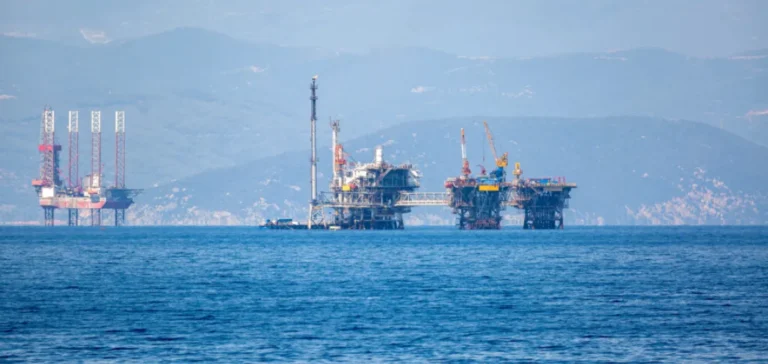US-based ExxonMobil has signed an agreement to acquire 60% of a gas exploration permit located west of Corfu Island, in Greece’s Ionian Sea. The deal marks its entry into a new offshore area in Greece, joining two local companies, Energean and Helleniq Energy, already holding stakes in the permit. The transaction shifts the consortium’s balance, reducing Energean’s share to 30% and Helleniq Energy’s to 10%.
Exploratory drilling scheduled between late 2026 and early 2027
The agreement outlines that exploratory drilling is to begin by the end of 2026 or early 2027, subject to obtaining the necessary regulatory approvals. ExxonMobil, now holding the majority stake, will assume development management in case of a commercial discovery. The Greek government welcomed the deal as a strategic step in its energy policy, with the Prime Minister describing the agreement as a “historic moment”.
This acquisition follows Chevron’s recent entry into other Greek exploration blocks. In September, Chevron was selected to lead a consortium with Helleniq Energy for exploration in four offshore zones in the Ionian Sea, south of the Peloponnese and around Crete. That agreement is pending parliamentary approval by early 2026.
Regional context and geopolitical involvement
The announcement was made in Athens during the annual conference of the Partnership for Transatlantic Energy Cooperation (P-TEC), attended by US government officials including the Secretary of Energy. Energy ministers from over 20 Central and Eastern European countries, along with executives from major international energy firms, were also present.
ExxonMobil stated it is expanding its Eastern Mediterranean operations, citing Greece as a new operational base. The group’s vice president mentioned potential research drilling investments by 2027, depending on exploration outcomes.
A strategy aligned with European energy policy
The boost in Greek exploration activity comes as the European Union moves to ban Russian natural gas imports by the end of 2027. The policy aims to cut Moscow’s energy revenues while bolstering Europe’s energy independence.
Greece’s Minister of Environment and Energy stated that successful drilling could allow the country to tap into domestic gas resources, decreasing reliance on imports. Greece aims to become a regional energy transit hub, particularly amid maritime tensions in the Eastern Mediterranean.






















